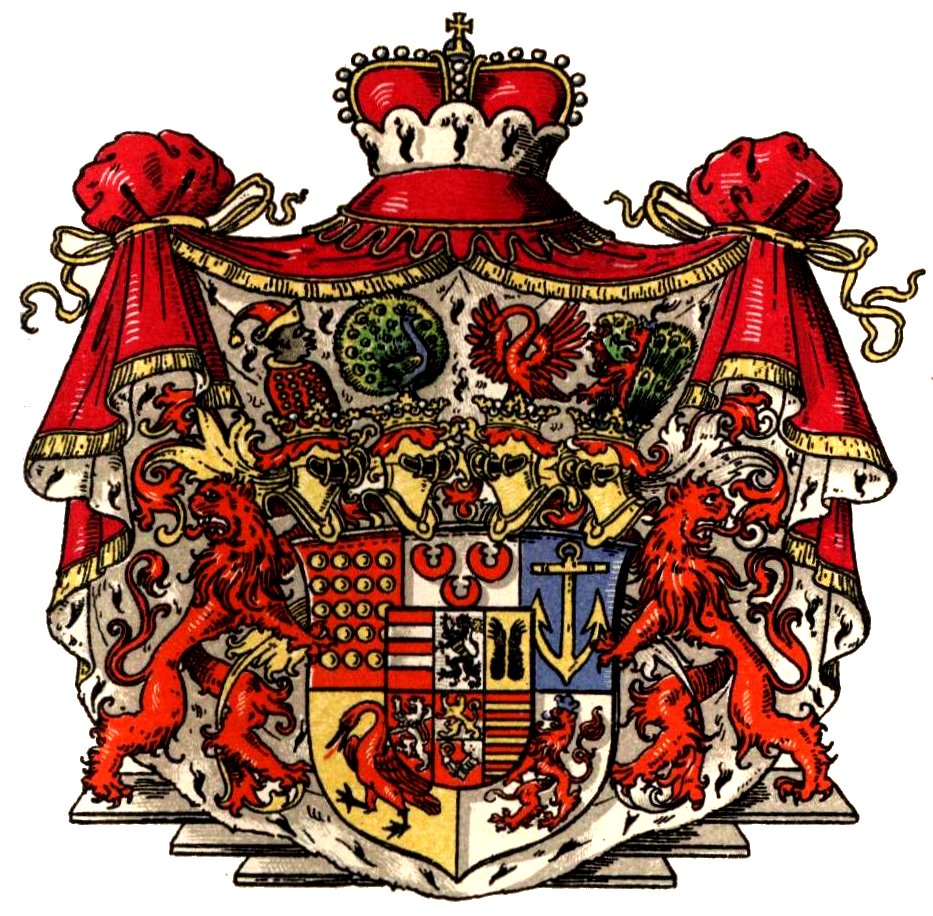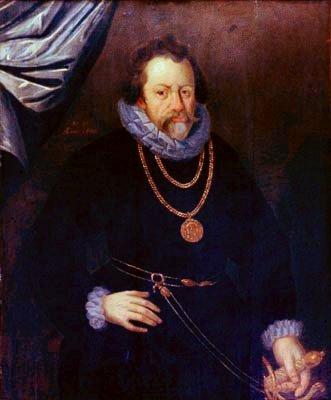Bentheim-Tecklenburg on:
[Wikipedia]
[Google]
[Amazon]
 Bentheim-Tecklenburg was a German county based in the region around Tecklenburg in northern
Bentheim-Tecklenburg was a German county based in the region around Tecklenburg in northern

Il castello di Bentheim (Jacob Van Ruisdael).jpg, Bentheim Castle (by
 Bentheim-Tecklenburg was a German county based in the region around Tecklenburg in northern
Bentheim-Tecklenburg was a German county based in the region around Tecklenburg in northern North Rhine-Westphalia
North Rhine-Westphalia (german: Nordrhein-Westfalen, ; li, Noordrien-Wesfale ; nds, Noordrhien-Westfalen; ksh, Noodrhing-Wäßßfaale), commonly shortened to NRW (), is a state (''Land'') in Western Germany. With more than 18 million inha ...
, Germany.
History
Bentheim-Tecklenburg emerged as a partition of theCounty of Bentheim
The County of Bentheim (''Grafschaft Bentheim'', Low German ''Benthem'') was a state of the Holy Roman Empire, located in the south-west corner of today's Lower Saxony, Germany. The county's borders corresponded largely to those of the modern a ...
in 1277, and was partitioned between itself and Bentheim-Lingen
Bentheim-Lingen was a county seated in Lingen in Germany. Bentheim-Lingen emerged as a partition of Bentheim-Tecklenburg in 1450, and was absorbed by Spain in 1555. Over the next century, ownership of Bentheim-Lingen passed between Spain and Nassa ...
in 1450. Count Conrad converted his county to Lutheranism
Lutheranism is one of the largest branches of Protestantism, identifying primarily with the theology of Martin Luther, the 16th-century German monk and Protestant Reformers, reformer whose efforts to reform the theology and practice of the Cathol ...
in 1541. In 1557, it was inherited by Bentheim-Steinfurt
Bentheim-Steinfurt was a historical county located in northwestern North Rhine-Westphalia in the region surrounding Steinfurt, Germany. Bentheim-Steinfurt was a partition of Bentheim-Bentheim, itself a partition of the County of Bentheim. Benthe ...
.

Arnold III, Count of Bentheim-Steinfurt-Tecklenburg-Limburg
Arnold III of Bentheim-Tecklenburg-Steinfurt-Limburg (10 or 11 October 1554 in Neuenhaus – 11 January 1606 in Tecklenburg) was a German nobleman. He was Count of Bentheim, Tecklenburg and Steinfurt, and Count of Limburg. He ruled as Arn ...
(1554-1606) held the counties of Bentheim, Tecklenburg, Steinfurt
Steinfurt (; Westphalian: ''Stemmert'') is a city in North Rhine-Westphalia, Germany. It is the capital of the district of Steinfurt. From roughly 1100-1806, it was the capital of the County of Steinfurt.
Geography
Steinfurt is situated nort ...
, Limburg
Limburg or Limbourg may refer to:
Regions
* Limburg (Belgium), a province since 1839 in the Flanders region of Belgium
* Limburg (Netherlands), a province since 1839 in the south of the Netherlands
* Diocese of Limburg, Roman Catholic Diocese in ...
(with Hohenlimburg Castle), the Lordship of Rheda, possessions on the Lower Rhine and bailiff rights in the Archbishopric of Cologne
The Archdiocese of Cologne ( la, Archidioecesis Coloniensis; german: Erzbistum Köln) is an archdiocese of the Catholic Church in western North Rhine-Westphalia and northern Rhineland-Palatinate in Germany.
History
The Electorate of Colo ...
. After his death his possessions were divided between his three eldest sons while the younger sons received lands from their mother. Adolf (1577-1623) received Tecklenburg and Rheda, Wilhelm Heinrich (1584-1632) Steinfurt (with Burgsteinfurt
Steinfurt (; Westphalian: ''Stemmert'') is a city in North Rhine-Westphalia, Germany. It is the capital of the district of Steinfurt. From roughly 1100-1806, it was the capital of the County of Steinfurt.
Geography
Steinfurt is situated north ...
Castle), but left no offspring, Konrad Gumprecht (1585-1618) received Limburg, but his only son died early. Adolf had four sons of whom Moritz (1615-1674) inherited Tecklenburg and Rheda in 1623 and Limburg in 1629. Moritz' two sons Johann Adolf (1637-1704) and Friedrich Moritz (1653-1710) partitioned the territories again, but in 1701 Brandenburgian troops occupied Tecklenburg, as there had been a dispute about the county with the counts of Solms-Braunfels
Solms-Braunfels was a County and later Principality with Imperial immediacy in what is today the federal Land of Hesse in Germany.
Solms-Braunfels was a partition of Solms, ruled by the House of Solms, and was raised to a Principality of t ...
since 1577, and the latter sold their rights to Brandenburg.
After the loss of Tecklenburg, the family still ruled in Limburg and Rheda, however about 100 kilometers apart from each other. In 1756 the residence was moved from Hohenlimburg to Rheda, which remains the main seat of the family to this day. In 1803 the secularized monasteries of Herzebrock and Clarholz, both located within the territories, were taken over by the counts. However, their sovereignty ended with the mediatisation Mediatization or mediatisation may refer to:
* German mediatisation
German mediatisation (; german: deutsche Mediatisierung) was the major territorial restructuring that took place between 1802 and 1814 in Germany and the surrounding region by ...
in 1808 when the county became part of the Grand Duchy of Berg
The Grand Duchy of Berg (german: Großherzogtum Berg), also known as the Grand Duchy of Berg and Cleves, was a territorial grand duchy established in 1806 by Emperor Napoleon after his victory at the Battle of Austerlitz (1805) on territories b ...
, and after the Congress of Vienna
The Congress of Vienna (, ) of 1814–1815 was a series of international diplomatic meetings to discuss and agree upon a possible new layout of the European political and constitutional order after the downfall of the French Emperor Napoleon ...
(1815) of the Kingdom of Prussia
The Kingdom of Prussia (german: Königreich Preußen, ) was a German kingdom that constituted the state of Prussia between 1701 and 1918.Marriott, J. A. R., and Charles Grant Robertson. ''The Evolution of Prussia, the Making of an Empire''. ...
. In 1817, the count was created 1st Prince of Bentheim-Tecklenburg and Rheda by the Prussian king. In 1854 he received a hereditary seat in the Prussian House of Lords
The Prussian House of Lords (german: Preußisches Herrenhaus) in Berlin was the upper house of the Landtag of Prussia (german: Preußischer Landtag), the parliament of Prussia from 1850 to 1918. Together with the lower house, the House of Re ...
. The castles of Hohenlimburg and Rheda and the abbeys of Herzebrock and Clarholz are still today owned by the House of Bentheim-Tecklenburg-Rheda.
Jacob van Ruisdael
Jacob Isaackszoon van Ruisdael (; 1629 – 10 March 1682) was a Dutch painter, draughtsman, and etcher. He is generally considered the pre-eminent landscape painter of the Dutch Golden Age, a period of great wealth and cultural ach ...
(1653)
Tecklenburg, Wierturm.jpg, Tecklenburg Castle
Schloss Hohenlimburg - Ansicht.jpg, Hohenlimburg Castle
Rheda Schloss.jpg, Rheda Castle
Counts of Bentheim-Tecklenburg (1277–1557)
*Otto III (1277–1338) *Otto IV (1289–1302) *Otto V (1302–1328) *Richardis (1328–1338) * Nicholas I ''(Count of Alt-Bruchhausen andSchwerin
Schwerin (; Mecklenburgian Low German: ''Swerin''; Latin: ''Suerina'', ''Suerinum'') is the capital and second-largest city of the northeastern German state of Mecklenburg-Vorpommern as well as of the region of Mecklenburg, after Rostock. It ...
)'' (1338–1360)
* Otto VI (1360–1388)
*Nicholas II
Nicholas II or Nikolai II Alexandrovich Romanov; spelled in pre-revolutionary script. ( 186817 July 1918), known in the Russian Orthodox Church as Saint Nicholas the Passion-Bearer,. was the last Emperor of Russia, King of Congress Pol ...
(1388–1426)
* Otto VII (1426–1450)
*Nicholas III ''(Count of Bentheim-Lingen
Bentheim-Lingen was a county seated in Lingen in Germany. Bentheim-Lingen emerged as a partition of Bentheim-Tecklenburg in 1450, and was absorbed by Spain in 1555. Over the next century, ownership of Bentheim-Lingen passed between Spain and Nassa ...
)'' (1450–1493)
*Otto VIII (1493–1526)
*Conrad ''(Count of Bentheim-Lingen
Bentheim-Lingen was a county seated in Lingen in Germany. Bentheim-Lingen emerged as a partition of Bentheim-Tecklenburg in 1450, and was absorbed by Spain in 1555. Over the next century, ownership of Bentheim-Lingen passed between Spain and Nassa ...
)'' (1526–1557)
Counts of Bentheim-Tecklenburg (1562–1817)
*Arnold III, Count of Bentheim-Steinfurt-Tecklenburg-Limburg
Arnold III of Bentheim-Tecklenburg-Steinfurt-Limburg (10 or 11 October 1554 in Neuenhaus – 11 January 1606 in Tecklenburg) was a German nobleman. He was Count of Bentheim, Tecklenburg and Steinfurt, and Count of Limburg. He ruled as Arn ...
(1562–1606)
Counts of Bentheim-Tecklenburg-Rheda
*Adolf, Count of Bentheim-Tecklenburg (1606–1623) *Moritz, Count of Bentheim-Tecklenburg, Rheda and Limburg (1623–1674) *Johann Adolf, Count of Bentheim-Tecklenburg and Rheda (1674–1704) *Friedrich Moritz, Count of Bentheim-Tecklenburg (1704–1710), sold his rights on Tecklenburg to Brandenburg in 1707 *Moritz Kasimir I of Bentheim-Tecklenburg (1710–1768), brother of Friedrich Moritz *Moritz Kasimir II of Bentheim-Tecklenburg (1768–1805), son of Friedrich Moritz *Emil Friedrich I of Bentheim-Tecklenburg (1805–1817), count of Limburg and Rheda, regent of Bentheim-Tecklenburg, 1817 1st Prince of Bentheim-Tecklenburg and Rheda(Mediatized) Princes of Bentheim-Tecklenburg and Rheda (1817–)
* Emil, 1st Prince 1817–1837 (1765-1837) ** Moritz Kasimir, 2nd Prince 1837–1872 (1795-1872) ** Franz, 3rd Prince 1872-1885 (1800-1885) ** Prince Adolf Ludwig (1804-1874) ***Gustav
Gustav, Gustaf or Gustave may refer to:
*Gustav (name), a male given name of Old Swedish origin
Art, entertainment, and media
* ''Primeval'' (film), a 2007 American horror film
* ''Gustav'' (film series), a Hungarian series of animated short cart ...
, 4th Prince 1885-1909 (1849-1909)
**** Adolf, 5th Prince 1909-1967 (1889-1967)
***** Moritz Casimir, 6th Prince 1967-2014 (1923-2014)
****** ''Prince Carl-Gustav Moritz-Casimir'' (1960-) - renounced succession rights
****** Maximilian, 7th Prince 2014- (1969-) ∞ Marissa Clara Fortescue, granddaughter of Denzil Fortescue, 6th Earl Fortescue
******* Prince Moritz (2003-)
******* Prince Carl-Emil (2010-)
References
Counties of the Holy Roman Empire States and territories established in 1277 {{Germany-hist-stub